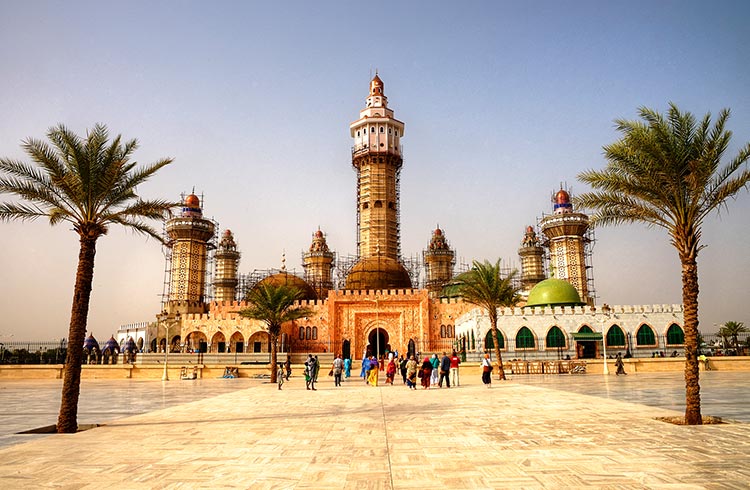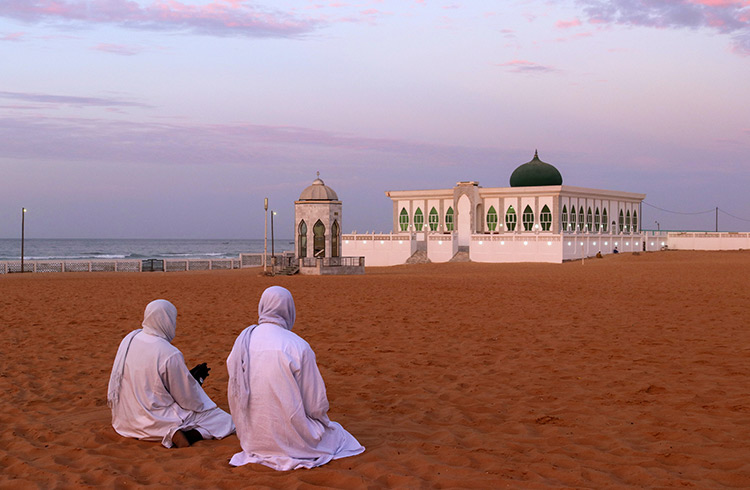Is Senegal Safe To Visit? 7 Important Travel Safety Tips
Dangerous highway bandits, aggressive scams and complex fraud. Find out how to stay safe and escape trouble in Senegal.
 Photo © Getty Images/Mariusz Kluzniak
Photo © Getty Images/Mariusz Kluzniak
Compared to some other West African countries, the political climate in Senegal is pleasantly stable. Few insurgent attacks or incidents of banditry occur here. However, an increase in politically-linked crime has emerged in a few areas, often near unstable border countries.
Senegal does experience petty crime and some more serious incidents. Pickpocketing, purse-snatching and theft can occur both on the streets and in taxis, and can turn violent. Some travelers have reported being victims of armed robbery, including at knifepoint.
There are general precautions you can take to avoid crime in Senegal. Try to travel in groups and avoid going out on foot in the evenings.
Never flash or carry valuables, and be vigilant in large crowds and markets, as these areas are where thieves typically target tourists. Crime increases around major religious holidays, so don't let your guard down during these times.
1. Border conflict in Senegal
Conflicts between Senegal's army and the separatist Movement of the Democratic Forces of Casamance (MFDC) faction is an ongoing low-level conflict that has been going on since 1982. Injuries and fatalities have occurred, including the deaths of seven soldiers during a December 2010 attack. In 2014 the leader of the MFDC declared a unilateral ceasefire.
Armed separatist groups continue to attack and rob in the region of Casamance in southwestern Senegal, particular in the Bignona and Sindian areas. Due to the high kidnapping risk in Mali, travelers are advised to avoid the area bordering that country. Mauritania presents a similar risk.
Rural areas of Senegal east of Podor to Kidira, near these borders, pose significant risks of both abduction and terrorist activity. Other border areas to avoid include those near the Republic of Guinea, which has experienced political tensions in recent years.
2. High crime areas in Senegal
Crime happens frequently in Dakar, in areas like the airport, Place de l'Independence, the Western Corniche and the central part of the Plateau. Dakar's restaurant district, called La Petite Corniche, and St.-Louis' restaurant area, are known for muggings and robberies. Keep your belongings out of sight to avoid being robbed.
The Pink Lake or Lac Rose tourist area can be dangerous at night, especially on isolated beaches. Travelers should not go out alone and must be extremely cautious of suspicious-looking strangers. Just keep your eyes peeled and be aware of anyone lurking close by. Leave when it is safest to do so if you are being watched.
Highways after dark in Senegal can be dangerous as well, with banditry often occurring in the central and eastern parts of the country. This danger extends to Tambacounda and Matam.
Criminals are known to stake out RN2, or National Road, between Ndioum and Kidira. They may also wait for victims on the RN1 between Kidira and Tambacounda. Bandits may ambush cars and buses.
Try to avoid travel to the Casamance region as well. In June 2009, members of the Movement of the Democratic Forces of the Casamance rebel group reportedly killed three individuals in a car jacking near Kawane, a village in northern Casamance. These rebels have no qualms about robbing and assaulting civilians and government officials.
3. Common scams in Senegal
Vendors, beggars and children can be very aggressive when asking for money and may try to distract you while a partner steals from you. Be aware of anyone who is acting overly friendly, and if the offer sounds too good to be true, it is.
Also watch out for anyone selling ebony as souvenirs, as some dodgy vendors will just sell regular wood covered in boot polish to make it look like the real stuff. Make sure you're buying locally made, ethically-sourced souvenirs.
4. Fraud in Senegal
Another common type of crime in Senegal is fraud. Business, visa and dating scams are very common here, and can result in physical violence or loss of money.
Business scams often start with a random email from someone – often a purported refugee or relative of a present or former politician – who proposes an idea to generate rapid profit.
These scams can also involve advance fees, bank account information and false job offers asking for payment for visa or administrative processing. Remember that no legitimate employer will ever ask you to pay money for a job. Delete, block and do not reply to these emails. They are fake.
Visa scams mostly involve victims who want to go to the United States. They are offered a visa by someone, but only if they pay a high amount of money to register for an event or conference.
Links to fake U.S. government web sites are often used by criminals asking for donations. Criminals may try to win over a tourist's heart so that they can then ask for money after the visitor has returned home. This can happen in person or via email.
5. Politics and protests in Senegal
In urban areas of Senegal, you might happen upon strikes and protests. They are mostly peaceful and are generally announced a few days in advance, but they may start suddenly and lead to violence and tear gassing by authorities. You should stay away from such displays and leave the area if they begin unexpectedly.
Common areas for demonstrations include the University on Route de Ouakam, Colobane and Medina. The most recent protests have centered on constitutional amendments in Central Dakar's Place de L'Independence, a major tourist hub.
6. Getting around Senegal safely
When trying to get around Senegal, watch out for armed bandits on buses and in cars. Violent ambushes have been known to occur on different roadways around Senegal.
Public transportation, particularly mini-buses, tend to move slowly because of these dangers and may not always be reliable. Sept-place taxis can take you to other parts of Senegal or to bordering countries. There are also train options and boats to take you to nearby islands.
With the exception of the main road going from Ziguinchor to Cap Skiring, avoid travel in the Casamance region, particularly to the west of Kolda, to guard against potential security incidents. If you must travel here, do so in the daytime, as the N4 and N5 roads close at 6pm.
Main roadways are generally paved and well-maintained, but secondary and remote ones are dangerous, especially in the rainy season from July to October. There are both good and bad drivers in Senegal, and some cars, taxis and mini-buses are poorly-maintained.
Driving at night can be unsafe due to poor lighting. Dakar suffers from heavy traffic that ups the accident risk. If you do get in an accident, call the police and wait for them to come.
7. Unnatural hazards
Landmines can pose another hazard in certain areas like Casamance. Several hundred people have died since 1990 due to these landmines. Only driving on paved roads will significantly reduce your chances of encountering these explosives. Potholes and roaming animals present other road dangers when driving in Senegal.
Related articles
Simple and flexible travel insurance
You can buy at home or while traveling, and claim online from anywhere in the world. With 150+ adventure activities covered and 24/7 emergency assistance.
Get a quote
No Comments